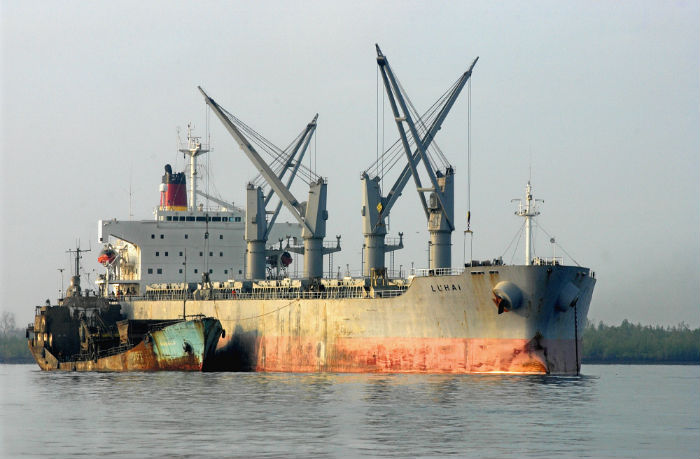By: Inga Vesper
Send to a friend
The details you provide on this page will not be used to send unsolicited email, and will not be sold to a 3rd party. See privacy policy.
[HONOLULU] Scientific panels comprising conservation researchers and industry representatives can overcome mistrust between their sectors to help save endangered species, a conference has heard.
The creation of such panels in Niger and Russia has resulted in action to improve habitats by some oil giants operating in these countries, IUCN (International Union for the Conservation of Nature) representatives told an event at the World Conservation Summit. They explained that the science focus of such panels has defused potential conflict between the oil industry and activists, instead providing transparent and independent advice.
For example, the Western Gray Whale Advisory Panel, set up by the IUCN, has worked with local oil company Sakhalin Energy to reduce the impact of drilling at the eastern Russian coast on this critically endangered species. As a result of their work, the number of whales in the area increased from 115 in 2004 to 174 in 2015.
“Cooperating with industry is crucial for the long-term protection of endangered species,” says Steward Maginnis, the director for nature-based solutions at the IUCN. “We found that we needed to take advice from as many parties as possible.”The panel’s advantage, according to its organisers, is that it includes sound scientific advice as well as voices from local communities. This mix results in high-quality and rounded input, which is easier for oil companies to act on, while potential conflict is diffused in the course of discussions, Maginnis says.
“Cooperating with industry is crucial for the long-term protection of endangered species. We found that we needed to take advice from as many parties as possible.”
Steward Maginnis, IUCN
At the event, which took place on 3 September in Honolulu, industry representatives from oil giant Shell said a similar panel set up in the Niger Delta was already providing the company with advice on cleaning up the area. Deric Quaile, a manager of environmentally sensitive areas at Shell, says the practical advice received from the Niger panel means company management is able to make decisions that conserve the environment and also make business sense, while clashes with NGOs are kept to a minimum.
“Initially, there was a lot of mistrust,” Quaile told SciDev.Net. “But as soon as you breach that mistrust you can make incredible progress.”
However, Wendy Elliot, the deputy global wildlife leader at conservation charity WWF, says there are still reservations about working with the industry on the NGO side. She describes how many NGO and community representatives felt angry about involving the oil industry in the Niger Delta — which caused the environmental problems in the first place — in clean-up efforts.
“But eventually, we saw that success requires every operator to come together,” she says. “There were times when we disagreed, but in the end the process worked. Our contributions improved the panel process.”














